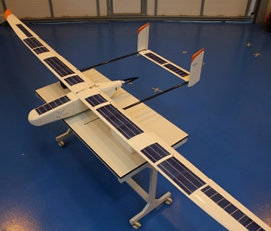The Spanish initiative PEGASO is building a prototype unmanned solar plane using photovoltaic cells to improve the plane’s energy management system and increase its flight range.
Leaders from Spanish technology research centers IAT (Andalusian Institute of Technology), CATEC (Center for Advanced Aerospace Technologies), CITIC (Andalusian Center of Innovation and Information & Communications Technologies) and CTAER (Advanced Technology Center for Renewable Energies), working together in the C4T consortium, have released a progress report about advances made in PEGASO (Experimental Aerial Platform for Advanced and Sustainable Management of Onboard Energy).
This initiative aims to produce a demonstration unmanned solar plane which efficiently manages onboard energy. The first prototype, under development in the southern Spanish region of Andalusia, represents an innovative step forward in the aerospace sector.
Photovoltaic cells have been installed in the prototype which will improve the plane’s energy management system and increase its flight range. In addition, researchers are working on the plane’s aerodynamics, efficient electronics, optimal systems integration and its carbon footprint, among other efforts.
The goal is to promote technologies linked to the EU’s RPAS program (Remotely Piloted Aircraft Systems) with minimal environmental impact, taking advantage of new advanced materials, renewable energy sources, microelectronics, robotics as well as software and analytics for management processes. This research is preparation for building larger aircraft in the future.
